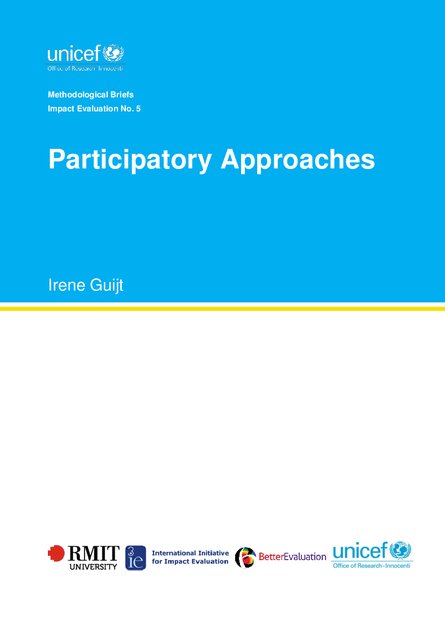
Using participatory approaches in impact evaluation means involving stakeholders, particularly the participants in a programme or those affected by a given policy, in specific aspects of the evaluation process. The term covers a wide range of different types of participation, which differ in terms of what is understood by ‘participation’, whose participation is wanted, and what it is that those people are involved in and how.
By asking the question, ‘Who should be involved, why and how?’ for each step of an impact evaluation, an appropriate and context-specific participatory approach can be developed. Managers of UNICEF evaluations must recognize that being clear about the purpose of participatory approaches in an impact evaluation is an essential first step towards managing expectations and guiding implementation. Is the purpose to ensure that the voices of those whose lives should have been improved by the programme or policy are central to the findings? Is it to ensure a relevant evaluation focus? Is it to hear people’s own versions of change rather than obtain an external evaluator’s set of indicators? Is it to build ownership of the UNICEF programme? These, and other considerations, would lead to different forms of participation by different combinations of stakeholders in the impact evaluation.